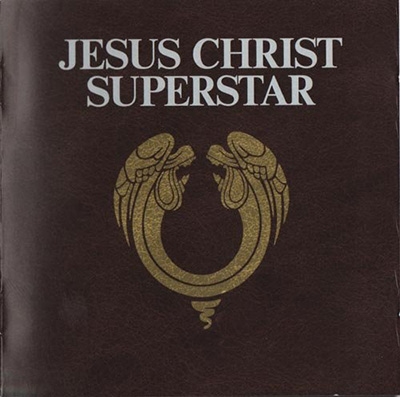11/23
時点_ポイント最大11倍
Andrew Lloyd Webber
Andrew Lloyd Webber 「Jesus Christ Superstar」 CD
販売価格
3,490
円 (税込)
- 出荷目安:
- 当日-翌日出荷
たまるdポイント(通常) 31
+キャンペーンポイント(期間・用途限定) 最大10倍
※たまるdポイントはポイント支払を除く商品代金(税抜)の1%です。
※表示倍率は各キャンペーンの適用条件を全て満たした場合の最大倍率です。
各キャンペーンの適用状況によっては、ポイントの進呈数・付与倍率が最大倍率より少なくなる場合がございます。
dカードでお支払ならポイント3倍
各キャンペーンの適用状況によっては、ポイントの進呈数・付与倍率が最大倍率より少なくなる場合がございます。

- 商品情報
- レビュー
【販売店・発送】 タワーレコード株式会社
商品の情報
| 発売日:2012年07月16日 / ジャンル:サウンドトラック / フォーマット:CD / 構成数:2 / 製造国:イギリス盤 / レーベル:Decca/Polydor UK / SKU:600753392713 / 規格品番:5339271 |
商品の紹介
| Jesus Christ Superstar started life as a most improbable concept album from an equally unlikely label, Decca Records, which had not, until then, been widely known for groundbreaking musical efforts. It was all devised by then 21-year-old composer Andrew Lloyd Webber and 25-year-old lyricist Tim Rice. Jesus Christ Superstar had been conceived as a stage work, but lacking the funds to get it produced, the two collaborators instead decided to use an album as the vehicle for introducing the piece, a fairly radical rock/theater hybrid about the final days in the life of Jesus as seen from the point of view of Judas. If its content seemed daring (and perhaps downright sacrilegious), the work, a "sung-through" musical echoing operatic and oratorio traditions, was structurally perfect for an album; just as remarkable as its subject matter was the fact that its musical language was full-blown rock music. There was at the time an American-spawned hit theater piece called Hair that utilized elements of rock music, but it wasn't as unified a work as Webber and Rice's creation, and it was less built on rock music than on pop music that referred to rock; Webber and Rice's work presented a far sharper, bolder musical edge and pushed it much further and harder than Hair ever did. Serving as their own producers, the two creators got together more than 60 top-flight singers and musicians (including Chris Spedding, John Gustafson, Mike Vickers, P.P. Arnold, and members of Joe Cocker's Grease Band, not to mention Murray Head, Ian Gillan, and Yvonne Elliman in key singing roles), and managed to pull the whole production together into a more than coherent whole that contained a pair of hit singles (the title track and "I Don't Know How to Love Him") to help drive AM radio exposure. What's more, the whole album sounded like the real article as far as its rock music credibility was concerned -- it was played good and hard for a studio creation. Released in America by Decca as a handsomely decorated double-LP set complete with illustrated libretto, Jesus Christ Superstar seemed to pick up where the Who's Tommy (also a Decca release) and Hair had left off, and audiences from across the age and cultural spectrum responded. Teenagers who didn't know from Jesus, opera, or oratorios liked the beat, the hard rock sounds, and the singing and bought the album, as did parents who felt that the record offered a chance to understand some aspects of this youth culture around them, and especially its music -- and so did some more forward-thinking clergy and theologians, who saw any opportunity to spread the word about Jesus where it wasn't previously going as intrinsically good. The result was a chart-topping LP followed in short order by a Broadway production and, a little later, a multi-million-dollar movie (oddly enough, the original double LP created barely a ripple in England in 1970 and 1971, though there was eventually a British stage production that went on to become what was then the longest-running musical on London's West End). And all of this acceptance and embrace in America took place scarcely five years after an innocent observation by John Lennon concerning the relative popularity of the Beatles and Jesus, made in England but reported in the American tabloids, had led to protests and a media boycott of the band's music and their 1966 tour across the Bible Belt. Jesus Christ Superstar, by contrast, passed through the border and Southern states without any controversy, speaking volumes in the process about what had happened to American society in the interim. The original release was also the first "event" album of the '70s, presaging a brace of generally less successful efforts in that direction, ranging from Lou Adler and Lou Reizner's orchestrated version of Tommy (Pete Townshend's rock opera basically blown up to Jesus Christ Superstar dimensions) to the soundtrack All This and World War II and Leonard Bernstein's Mass. Th to be continued... |
| Rovi |
収録内容
|
・構成数 | 2 ・合計収録時間 | 01:26:58 1.CD
2.CD
|











